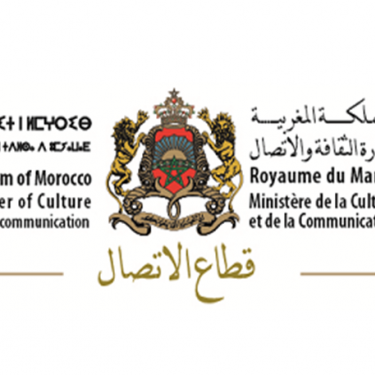RSF responds to Morocco’s culture and communication ministry

In response to the Moroccan culture and communication ministry’s accusations against Reporters Without Borders (RSF), the press freedom NGO says it stands by the information in its recent press releases about violations of freedom of information in northern Morocco’s Rif region.
RSF also urges the culture and communication minister to agree to meet with RSF representatives so that they can present its recommendations on the situation of the media in Morocco.
RSF is an international NGO that defends freedom of expression and information and has consultative status with the United Nations. Its mission includes documenting violations of the right to inform worldwide.
RSF’s staff and network of local correspondents carefully verify each case before it is reported. With the same discipline and determination to execute its mission properly, RSF has drawn the following issues to the attention of the Moroccan authorities:
- The arrest of Hamid El Mahdaoui, the editor of the Badil.info news website in the Rif city of Al-Hoceima on 20 July and his sentence to three months in prison and a fine of 20,000 dirhams (1,800 euros) for “inviting” people to “participate in a banned demonstration.” RSF reiterates its call for his release.
- The six citizen-journalists – Rif24 website editor Mohamed Al Asrihi, Rif24 photographer Jawad Al Sabiry, Araghi web TV presenter Abd Al Ali Haddou, Rif Press photographer Houssein Al Idrissi, AwarTV Facebook page host Fouad Assaidi and Badil.info reporter Rabiaa Al Ablak – who continue to be held without trial. They were arrested while providing news coverage in the Rif region and, in RSF’s view, they have no place behind bars.
- The expulsion of three foreign journalists who were covering the Rif unrest. José Luis Navazo, the Spanish editor of the Correo Diplomático online newsletter, and Spanish freelancer Fernando Sanz were expelled within hours of their arrest in July. Jamal Allilat, a visiting reporter for the Algerian newspaper El Watan, was arrested while covering protests in the Al-Hoceima region in May and was sent back to Algeria. RSF’s views on the forcible expulsion of foreign journalists have not changed. In our opinion, it clearly violates freedom of information.
- The criteria used for granting permits and accreditation to foreign journalists. After seeing repeated cases of foreign journalists getting no reply to their requests for permission to do video reporting in Morocco, RSF continues to urge the Moroccan authorities to clarify the accreditation process and to give clear reasons for a refusal, in order to avoid any ambiguity.
As regards the culture and communication ministry’s doubts about RSF’s right to defend citizen-journalists, RSF draws the ministry’s attention to the UN Human Rights Committee’s recent interpretation of article 19 (on freedom of expression and opinion) of the International Covenant on Civil and Political Rights.
In Point 14 of its General Comment No. 34, the committee urges states to “take particular care to encourage an independent and diverse media” and in Point 44 it emphasizes that “journalism is a function shared by a wide range of actors, including (...) bloggers and others who engage in forms of self-publication in print, on the Internet or elsewhere.”
With the aim of discussing these various issues further, RSF contacted Mohamed Ghazali, the culture and communication ministry’s secretary-general, on 18 August and requested a meeting with the minister, Mohamed El Aaraj. Pending a response, RSF’s staff pay their respects to the minister and secretary-general.
Morocco is ranked 133rd out of 180 countries inRSF’s 2017 World Press Freedom Index. The method used to score and rank countries isexplained on the RSF website.



